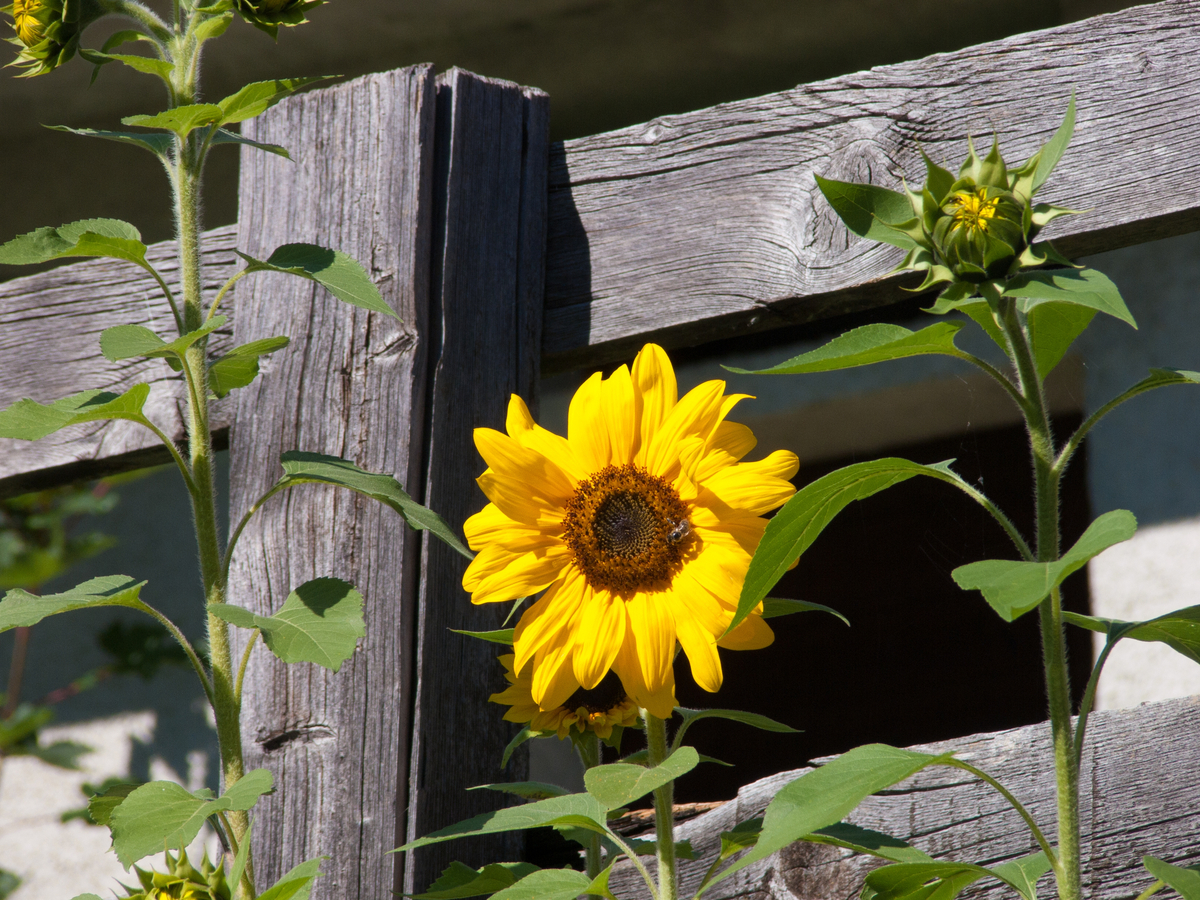
Sunflowers are one of those happy plants that shout summer is in full swing. They are tall and stately, producing large flower heads that rotate with the sun – one of only a few plant species that solar track.
There are various reasons why sunflowers make good companions, including their size (which makes them shade providers) as well as their pollinator-attracting abilities.
Sunflowers are great standalone plants, but are even better when paired with one of these twelve companions.
Quick Care Guide for Sunflowers
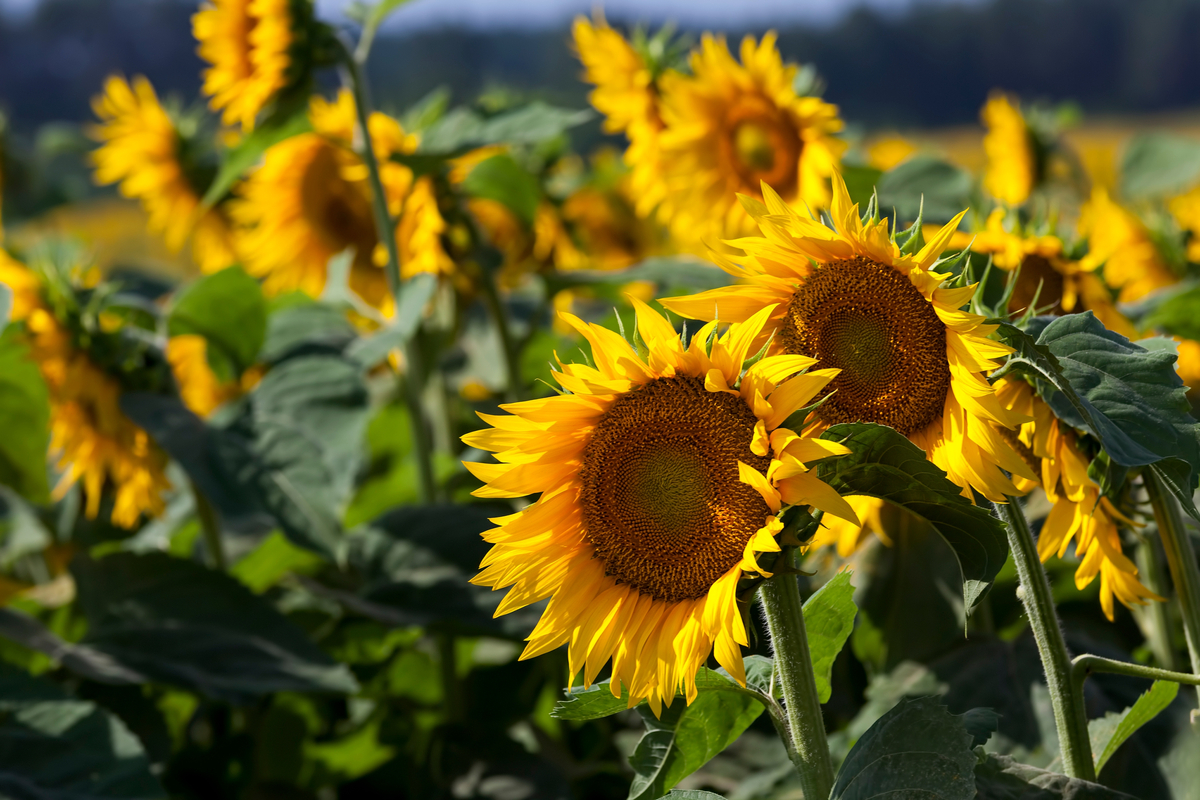
Sunflowers (Helianthus annuus) are tall, sun-loving plants with flowers that range in color from bright yellow to orange, maroon, red and chocolaty-brown.
Some varieties remain small – up to only a foot high – but there are some giants that can reach up to 14 feet high.
They need at least 6-8 hours of sunlight, with heads moving towards the light source throughout the day.
These plants aren’t fussy about soil, as long as it’s well-draining. They do require a strong start for optimal growth, so add plenty of compost and fertilizer to the soil before planting.
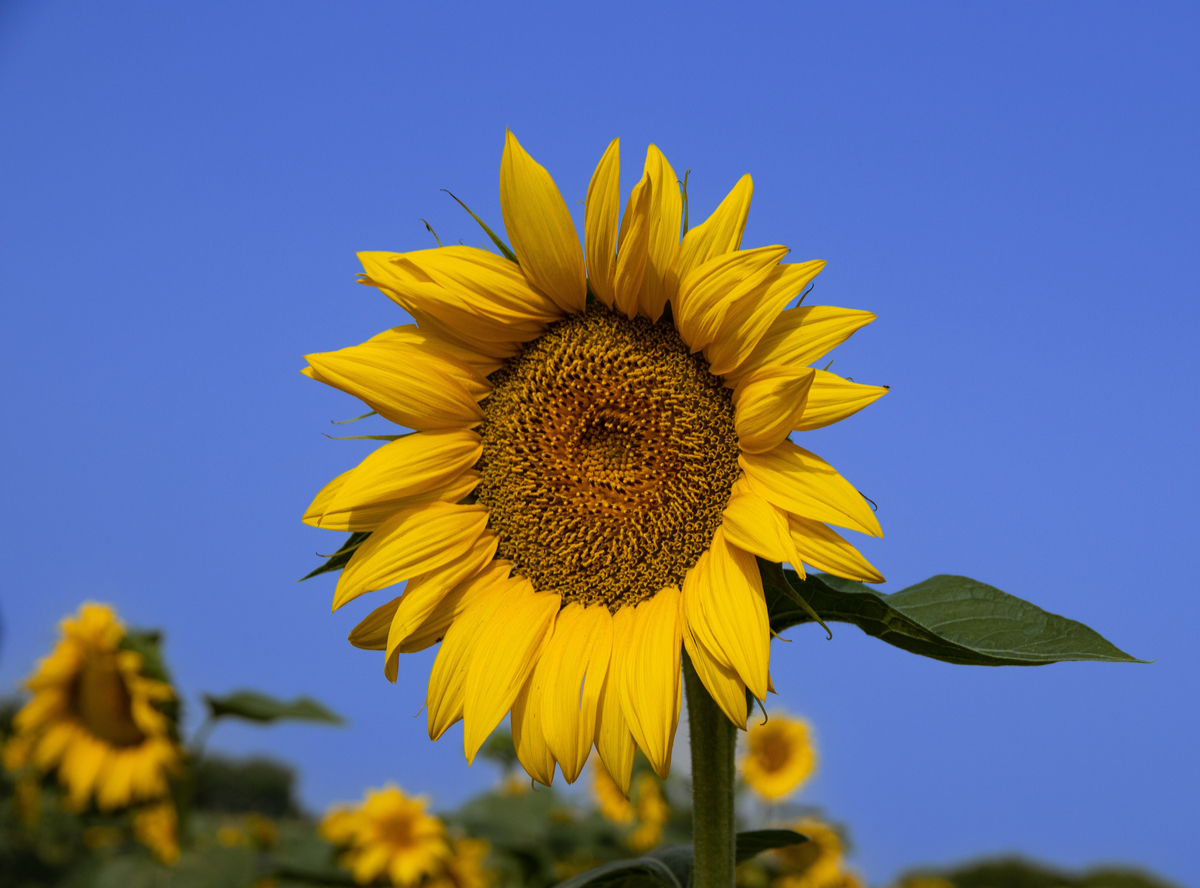
Sunflowers don’t enjoy the wind, best planted against a wall for shelter. By practicing succession planting (sowing every 5-6 weeks), you can extend the season and have flowers to enjoy throughout the season.
Water frequently after planting, reducing once the roots are established. This helps the tap roots dig deeper into the ground, making them more stable.
If you have done your soil prep before planting, there will be little need to fertilize them. If they are not performing as well as expected, add a weak dose of liquid fertilizer to their water.
Tall species may require staking. To avoid the extra labor, plant them along your fence line and tie them loosely with twine to provide support.
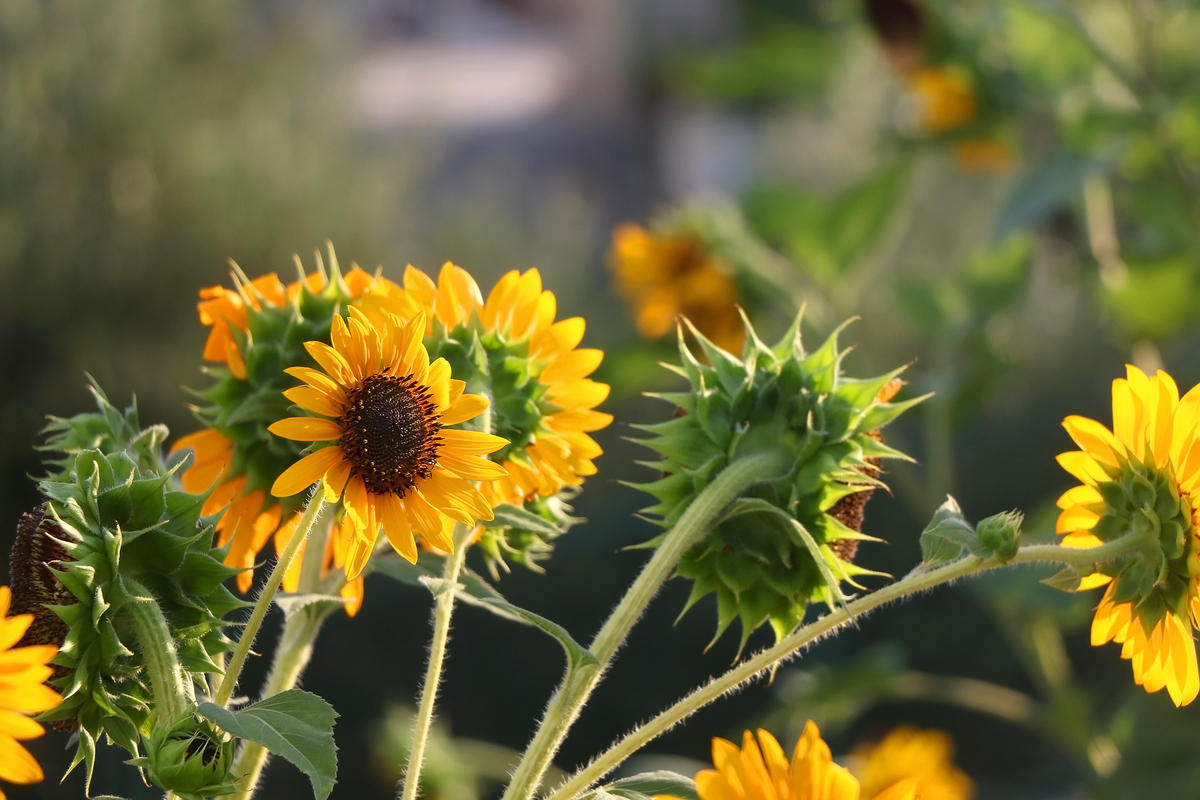
Related Reading: How to Grow Sunflowers: From Seed To Big Blooms
12 Best Companion Plants For Sunflowers
1. Lettuce

Lettuce is a great companion for sunflowers as it enjoys some shade, especially in the heat of summer.
It does better in winter, but can grow relatively well year-round. It also tends to bolt if the weather is too hot, so planting under sunflowers solves this problem.
Add some chives or onions to the mix and you have a powerful aphid and other pest-repelling team that works well together. Lettuce also keeps the soil cool for sunflowers and will act as a living mulch.
2. Summer Squashes
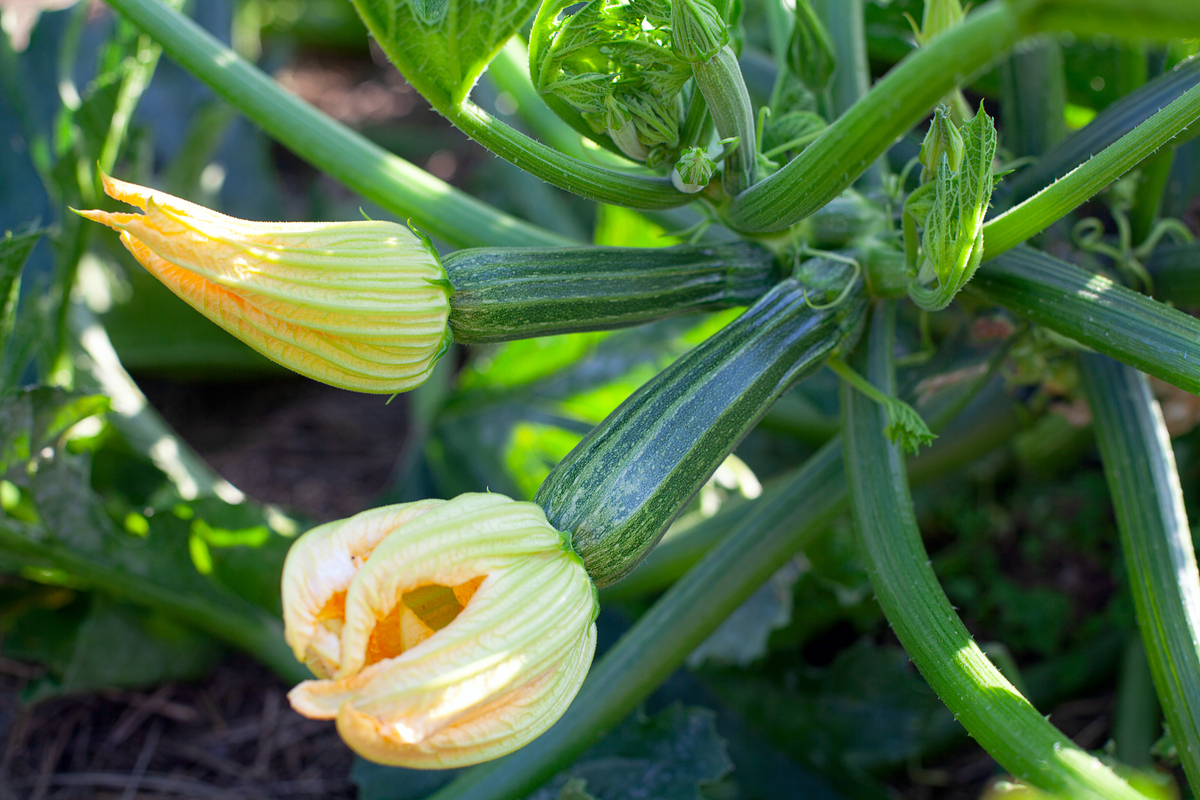
Still in the shade category, summer squashes are another good choice to plant under sunflowers.
Zucchini or courgette are grown at the same time as sunflowers in spring and summer, unlike their pumpkin cousins that are harvested in fall. They also have the same list of companions for pest-repelling tasks and they like the same fertile soil to start off.
Sunflowers provide shade and attract pollinators, while summer squash provides a cooling groundcover for the soil.
3. Cucumbers
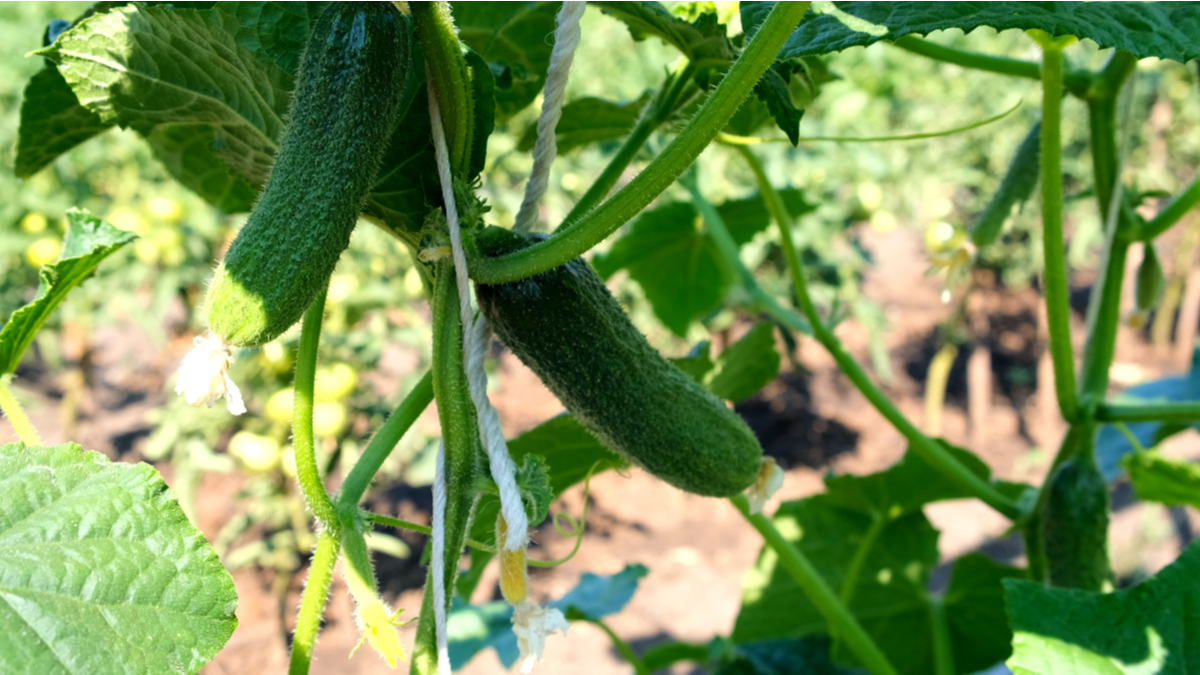
These companions are made for each other.
If you plant cucumber seedlings around sunflowers when they are around 12 inches tall, the cucumber vines will have sturdy stems to grow up. Cucumbers also have large leaves that shade the soil, keep it moist and reduce weeds.
There are even some who argue that cucumber yields are increased when planted with sunflowers.
Both these plants have the same soil requirements and the same watering routine, making them great friends.
4. Nasturtiums
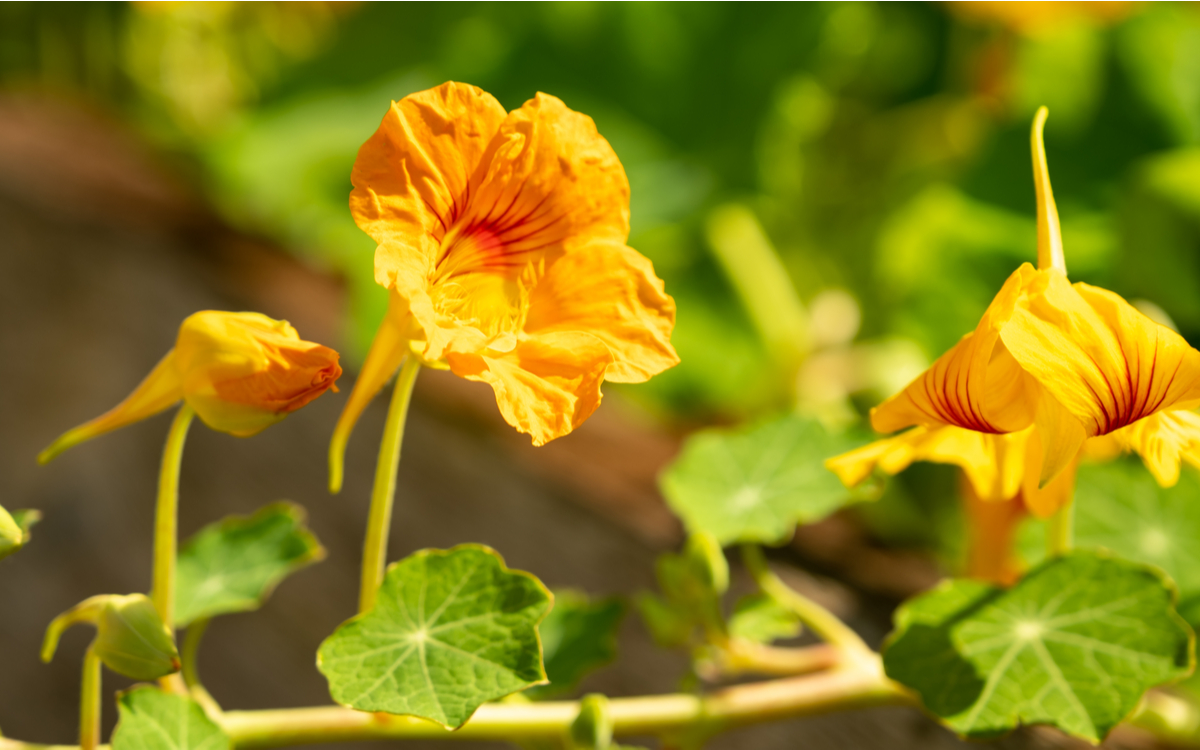
Nasturtiums are always a good companion for sunflowers.
Firstly, they sprawl over the ground, acting as a cooling mulch, shading the soil, and suppressing weeds. Secondly, the flowers attract good pollinators such as bees and butterflies, while repelling bad ones like cucumber beetle and whitefly.
They are also often used as trap crops that attract pests like aphids and squash bugs, sacrificed to keep pests away from plants around them.
The flowers of orange, red and yellow look great with sunflowers too. They can tolerate a bit of shade, doing well when planted under the giant blooms.
5. Impatiens
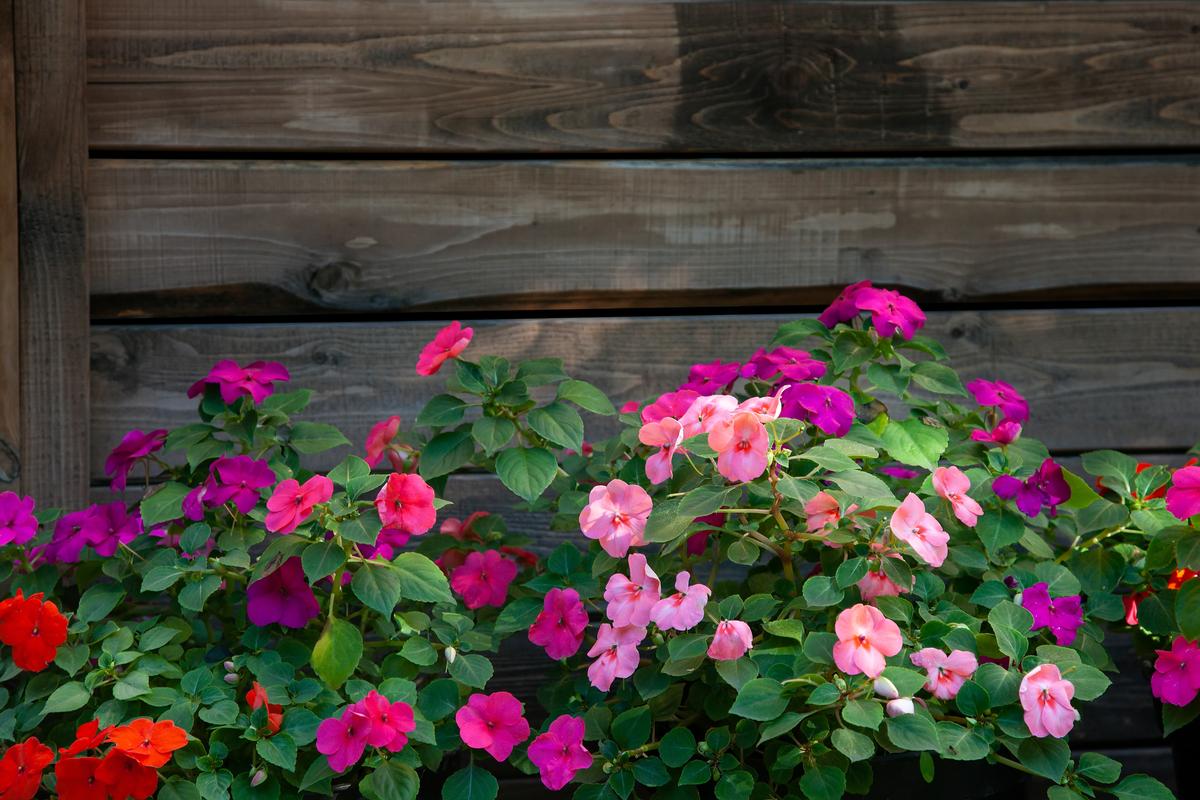
The fact that impatiens like shade is generally the only reason to grow these under sunflowers, but looks contribute to their compatibility too.
They come in such vibrant flowering colors that the combination of the bright pinks and purples with the bold yellows and oranges of sunflowers is a pretty combination.
They provide foliage to cover the soil and keep it cool. Plus, their bright colorful flowers attract pollinators too.
6. Onions and Garlic

Onions and garlic are known for their strong scent, repelling many annoying pests around other plants.
One of the great things about alliums planted with sunflowers is that animals like squirrels and deer that love to feast on sunflower seeds are repelled by the strong onion and garlic odor, keeping sunflowers safe from these critters.
In turn, sunflowers provide some protection for onions from the heat of summer and keep the soil cool. They also do not compete with each other for nutrients in the soil, making them ideal companions.
7. Peppers
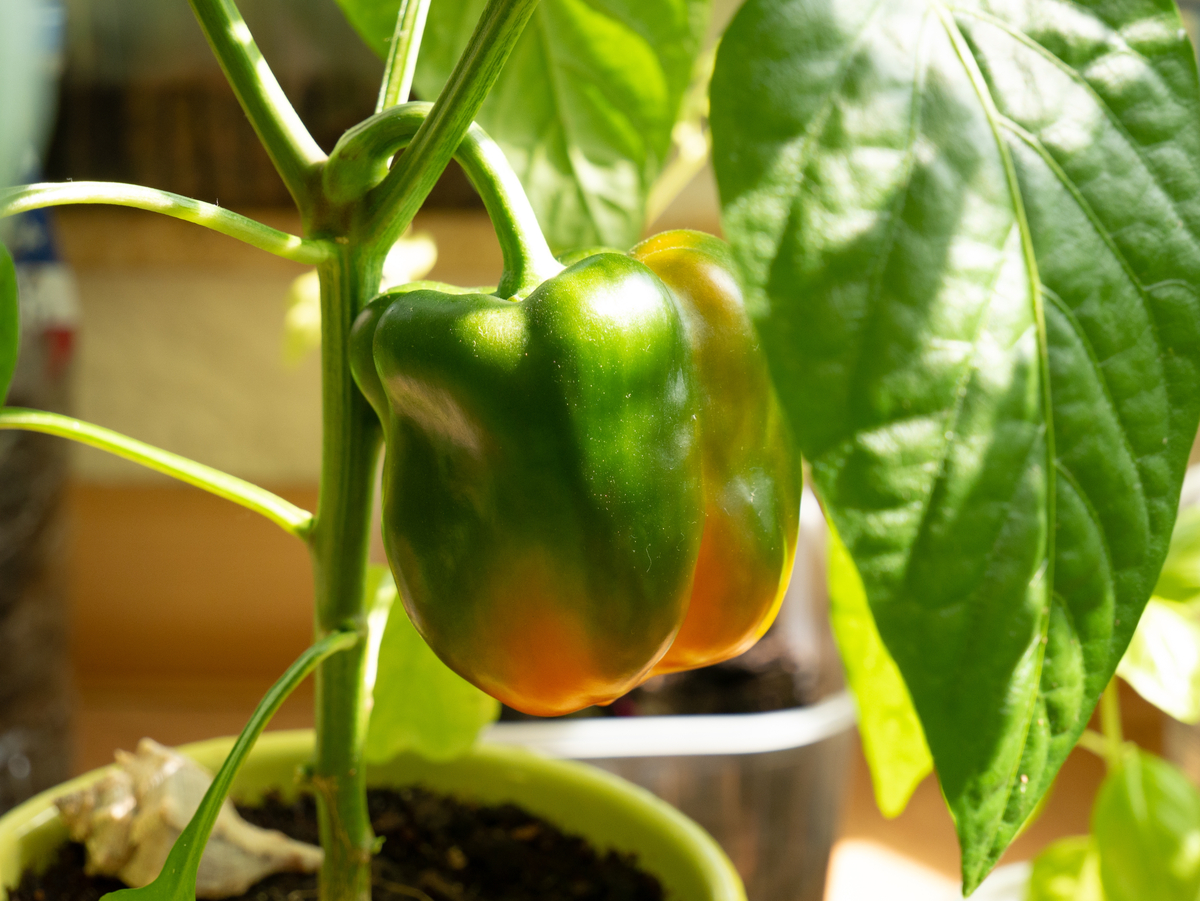
Peppers can get damaged by hot weather and find it helpful to be shaded by taller sunflowers. Pesky aphids will also leave peppers alone if planted with sunflowers.
Not only do sunflowers provide nectar for pest-eating beneficial insects when in flower, but even when not in flower, their leaves produce extrafloral nectar from the undersides of their leaves. This nectar is produced mainly for plant protection, not pollination.
It is often the beneficial insects that are attracted to the nectar and take care of the harmful pests, or at least keep them low in numbers. Peppers will benefit greatly from this sunflower trait.
8. Corn

You may think that growing corn with sunflowers is a bit too competitive, but in fact, they grow quite well together.
While both are tall, they do not compete for nutrients in the soil. Sunflowers are also magnets for ladybugs and these wonders are highly sought after, munching on aphids, fruit flies, mites and other insects that plague corn.
Also, they both produce chemicals that enhance the taste of the corn and produce better yields for both plants. It’s a win-win.
9. Marigolds
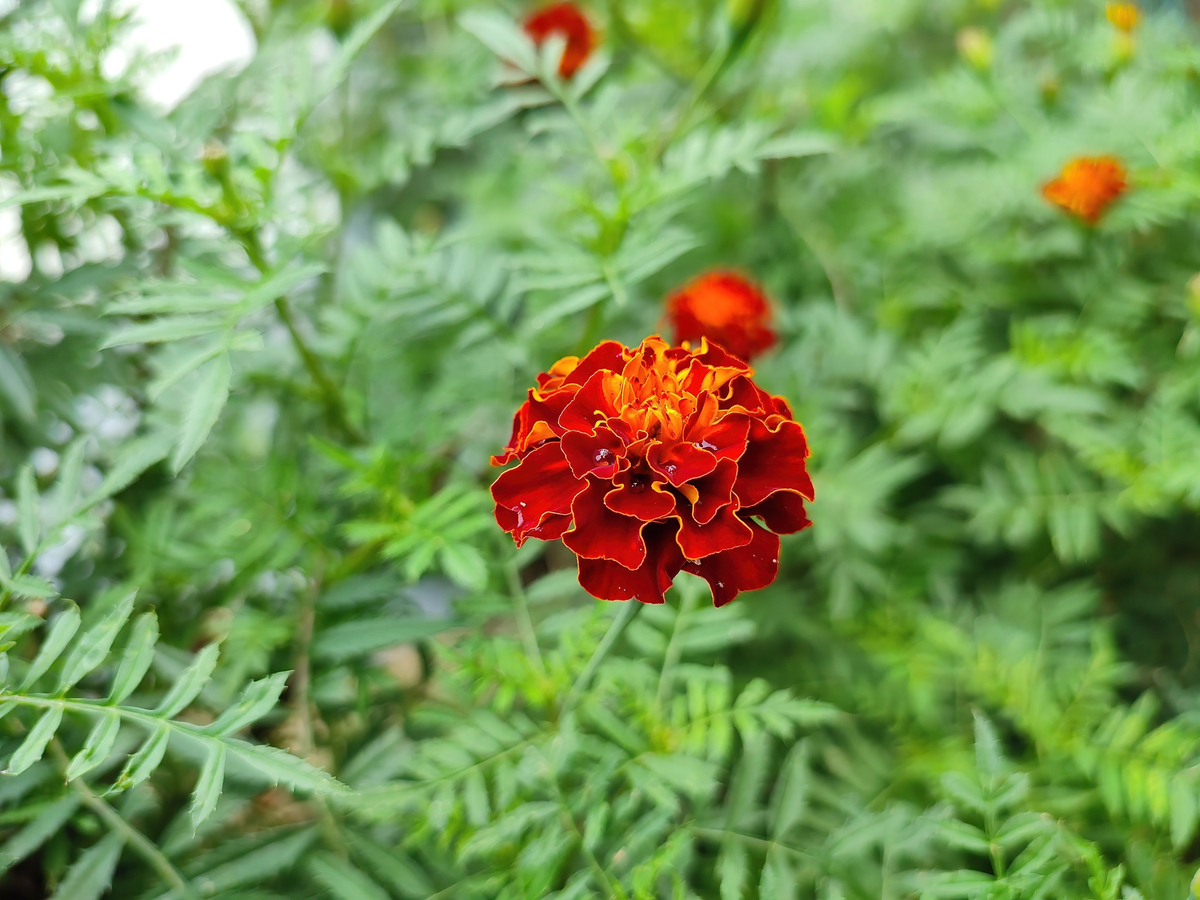
Perhaps the most well-known pest-repeller is the marigold.
The strong scent of the flowers is one of the reasons why marigolds are so good at pest management. They deter beetles, leafhoppers, and some types of worms too.
Plus, they have lovely flowers that blend well with the sunflower blooms, and they act as a good mulch.
10. Basil

There are plenty of herbs you can plant with sunflowers that make great companions. Basil, however, tops the list.
It can do with a little shade in the heat of summer as, just like lettuce, it will bolt if it gets too hot.
Basil is also a great companion with edibles like tomatoes and peppers. They are also on the list for planting with sunflowers, so it’s easy to plant them all together.
Basil enhances the flavor of tomatoes and peppers and protects a number of plants by attracting pollinators and deterring the bad bugs like beetles and worms.
11. Vine Tomatoes

Many of the vines grow well with sunflowers, using their thick stems as a trellis. Tomatoes are one such plant, benefitting greatly from being planted with sunflowers.
In fact, sunflowers are like tomato-defenders, repelling aphids and ultimately saving your harvest.
Tomatoes may get the biggest benefit out of the partnership, but they do attract some pollinators which will help the sunflowers too.
12. Peas and Sweet Peas

Another vining set of plants that need the support sunflowers provide are peas and sweet peas.
Peas are soil nitrogen fixers and although sunflowers don’t require much fertilizer if the soil is prepped correctly in the beginning, they are still good companions, not competing for nutrients and growing well together.
Just don’t add any of the alliums to the mix, or the peas won’t do well.
What Not to Plant With Sunflowers
Potatoes

The allelopathic characteristics of sunflowers are toxic to some plants, potatoes being one of them.
This process inhibits germination and can stunt the growth of potatoes. They also compete for nutrients in the soil.
Potatoes should be planted well away from sunflowers to avoid them affecting one another. There are also some studies into the effects of sunflowers increasing the chances of potato blight, a fungus that causes the potatoes to collapse and rot.
Pole Beans
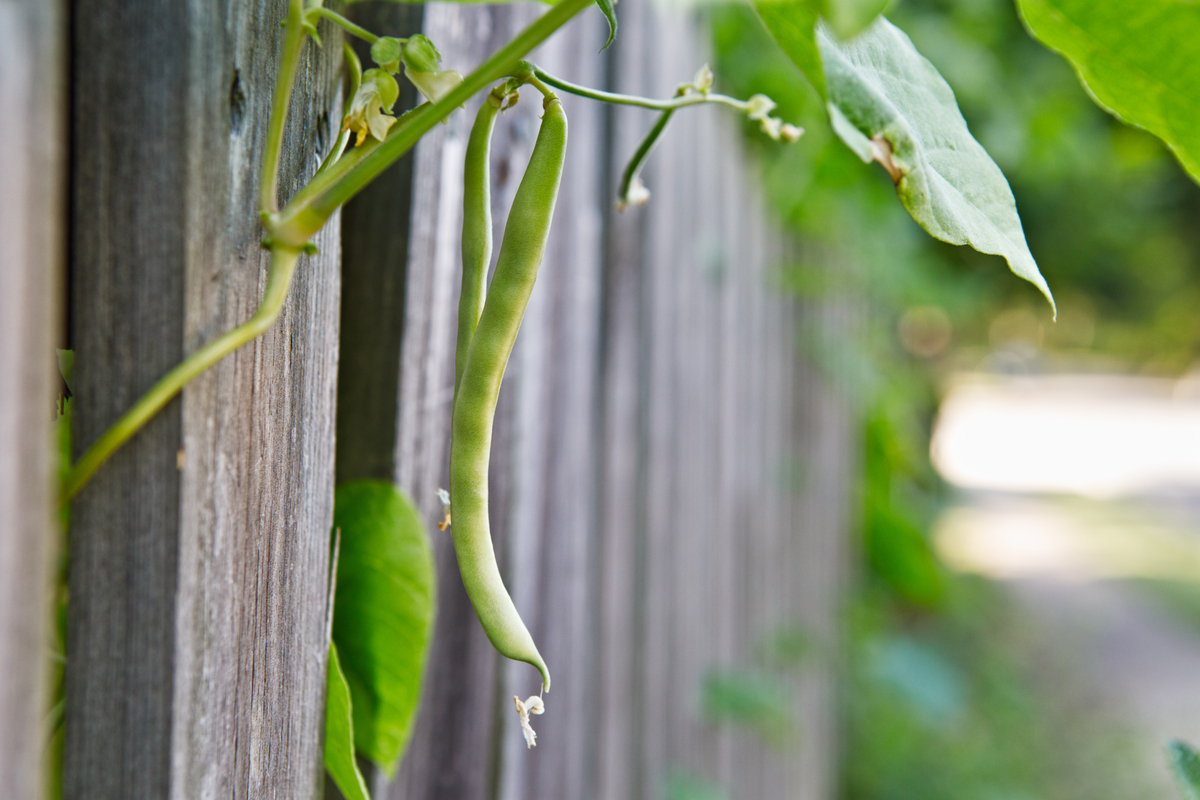
Although one of the best companions for pole beans is one of the sunflowers buddies – corn – pole beans and sunflowers do not mix well. The sunflower toxins inhibit the growth of the beans.
In the three sisters planting method, which creates a triangle of compatibility, beans are often used to climb up tall plant stalks, with sunflowers as a contender for this position. In this case, avoid these two together and use other plants instead.
Fennel

Avoid planting fennel with sunflowers as it will inhibit growth. In fact, fennel doesn’t have any friends in the garden and prefers to be alone, far away from other plants.
Try growing fennel in pots instead.
The Trouble With Allelopathic Plants
Studies of some plants have found that allelopathic characteristics can be used to suppress weeds in several agricultural crops.
Allelopathic plants produce a biochemical that can either be beneficial or detrimental to the germination and growth of other species and, in this case, a vast range of weeds that affect crops like rice or wheat.
Sunflowers are one of the allelopathic plants being studied and considered for use as a natural herbicide for weed control.
This also means that there is a list of plants that will not germinate around sunflowers, so stick to the ones on the list to be safe.
